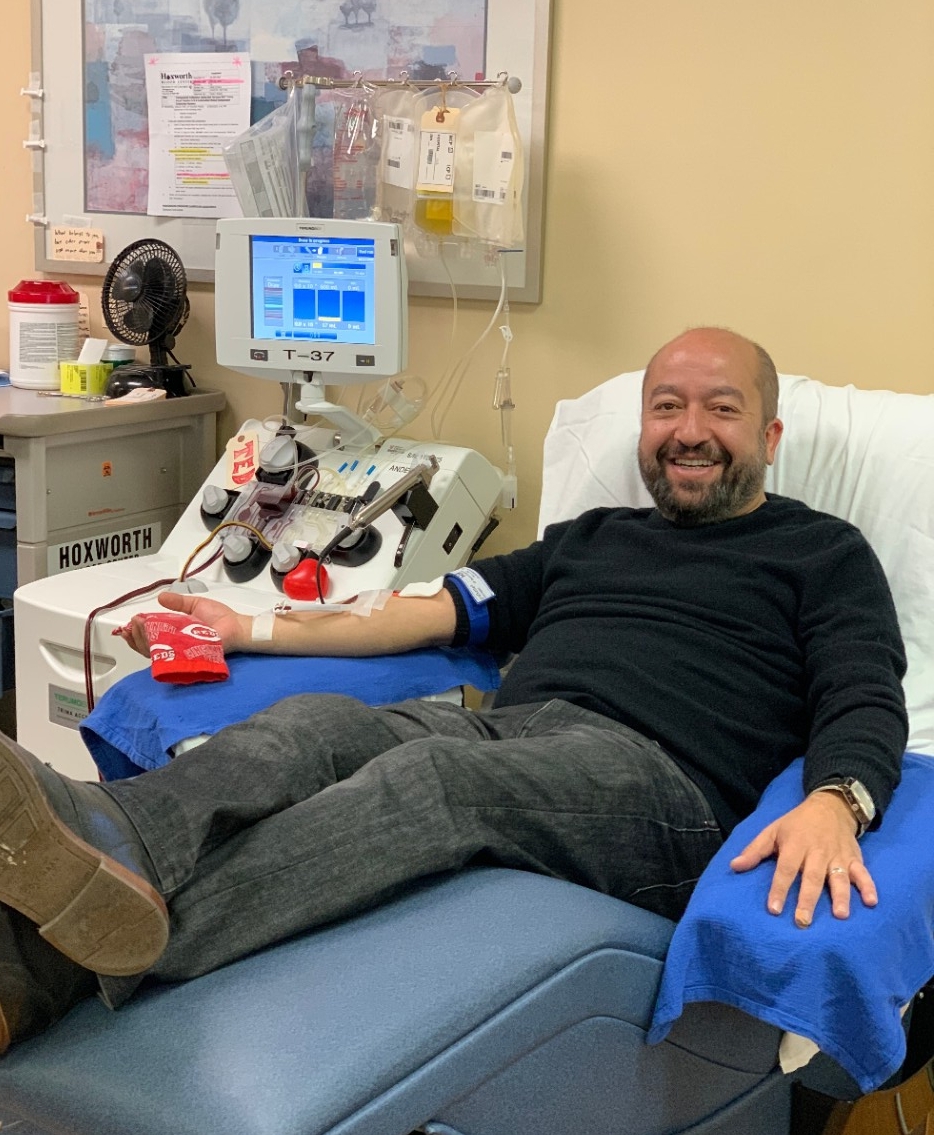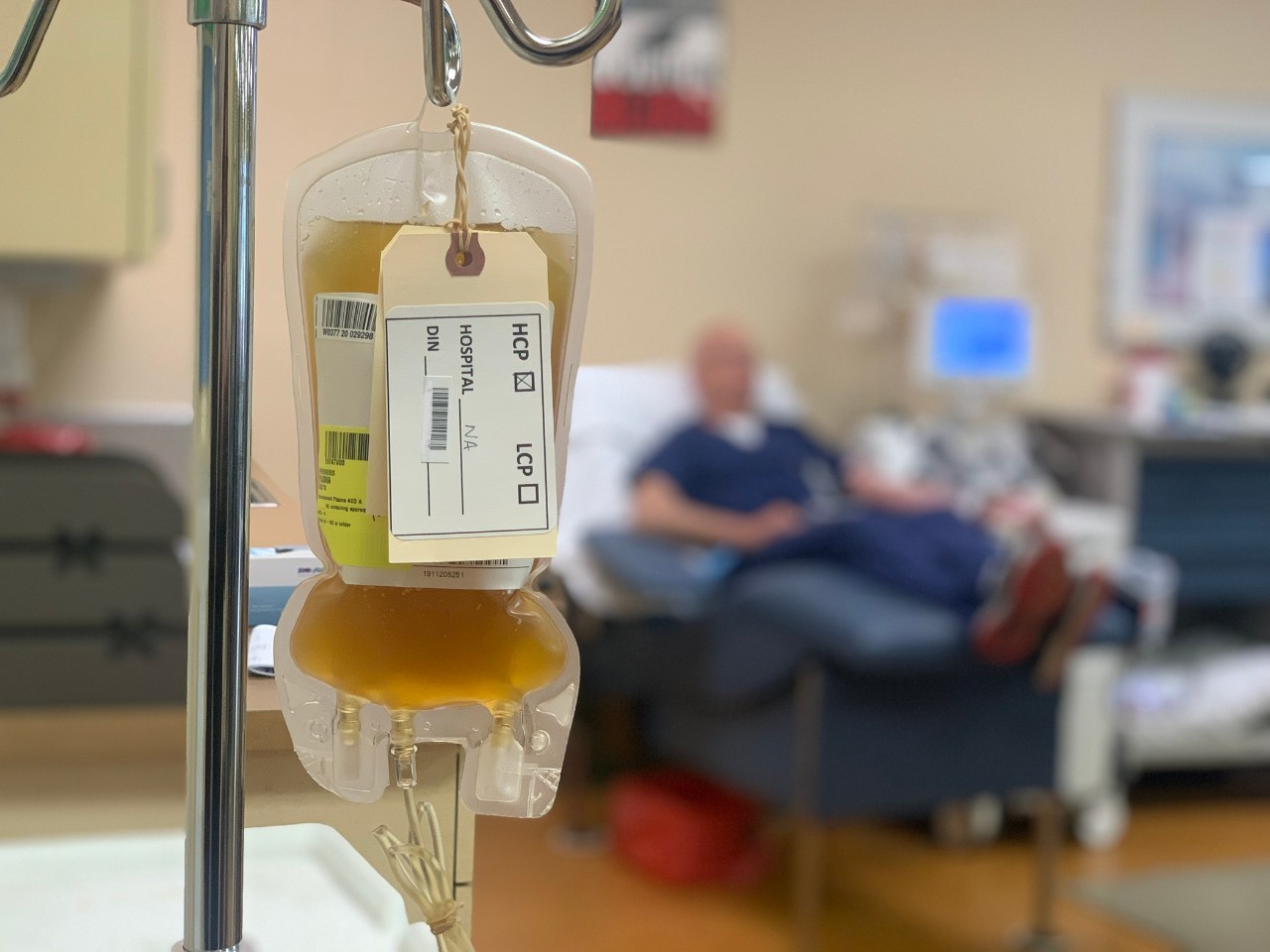Hoxworth's First Convalescent Plasma Donors
The first several months of 2020 have seen the COVID-19 virus spread its tendrils across the globe, bringing with it an atmosphere thick with fear and uncertainty. Hundreds of patients have died or remain in critical condition after being infected; government-mandated shutdowns resulted in shuttered businesses and workers without income, and widespread social-distancing measures have left large swaths of the population feeling isolated, with no end in sight.
But on Friday, April 17th, two recovered COVID-19 patients in the Cincinnati area offered a spark of hope in challenging times, just by rolling up their sleeves.
Mohammed Alagha and Dr. Robert Ernst were the first two individuals to donate convalescent plasma that could help the most critical COVID-19 patients in the Tri-State area.
In light of the COVID-19 outbreak, the FDA approved an Emergency Investigational New Drug (EIND) to allow the use of convalescent donor plasma for the treatment of the COVID-19 virus. Convalescent plasma is collected from recovered COVID-19 patients who are found to have developed significant numbers of antibodies in their plasma. Through transfusion, it is the hope that these antibodies will improve the disease fighting response to the virus, acting as a boost to the immune system.

Mohammed Alagha knew immediately that he wanted to do something to help after he was diagnosed with COVID-19 in March. He first fell ill on March 16th, despite taking safety precautions, after traveling internationally for work. “I had been really careful when I was traveling—sanitizer, hand washing. I still got sick,” he said. “It was not like the flu…the symptoms were very different. I had a fever, cough, shortness of breath, and a loss of taste.”
Alagha spent the weeks following his diagnosis doing research on how he could help other patients with the virus. After speaking with several doctors and hospitals, he learned that he could donate his plasma with Hoxworth Blood Center.
Alagha, who lives in Clifton, is not a regular blood donor—in his own words, “I am the person who is afraid of needles!”—but he was determined to help.
“This virus is not a joke. It’s serious,” Alagha said. “This is our duty, to do something for our community. If you’ve recovered, you should be coming in to donate.”

Dr. Robert Ernst, a neuroradiologist with UC Health who lives in West Chester, was similarly committed to helping in the wake of his recovery. He believes he contracted COVID-19 in Colorado from an individual who later passed away while battling the virus.
“I was sick for about six or seven days,” in early March, Ernst recalls. “But I had these unusual symptoms, like loss of taste.”
After receiving a positive antibody test for COVID-19, Ernst contacted Hoxworth to see if his plasma could be used.
“All I know that there is the potential to help people who are much sicker than I was. These patients are fighting for their lives,” Ernst said. “I think it’s important that we all need to help as much as we can. Anything I can do to help, I’ll do.”
And, he added, donating plasma is not a difficult task. “It’s just one quick stick, and now all I’m doing is laying here!” he said. “I’ll continue to donate once a week for the next three weeks.”
Each unit of donated plasma can be separated and transfused to three or four patients who are battling the virus—so Ernst’s donation could have a huge impact. But he isn’t looking for praise.
"I am thankful that I recovered and my family is healthy," he said. "Anything I can do to help anyone that is struggling with the disease, I am more than happy to help."
Alagha agrees—and while he knows that the convalescent plasma treatment is experimental, he still believes that donating his plasma is his duty. “I just want to help people,” he says. “We know there’s a chance that this could work—and if the patient has no other choice, why not? There’s nothing to lose but just an hour of our time.”
“It’s important that we can do something for our community," he finishes. “It’s not about being nervous, but about us sharing responsibility and doing something to help. It’s so easy. I hope that people seeing me do this makes them feel better.”
